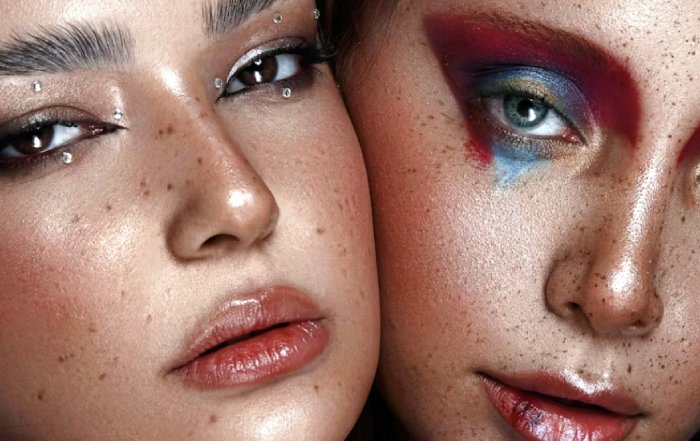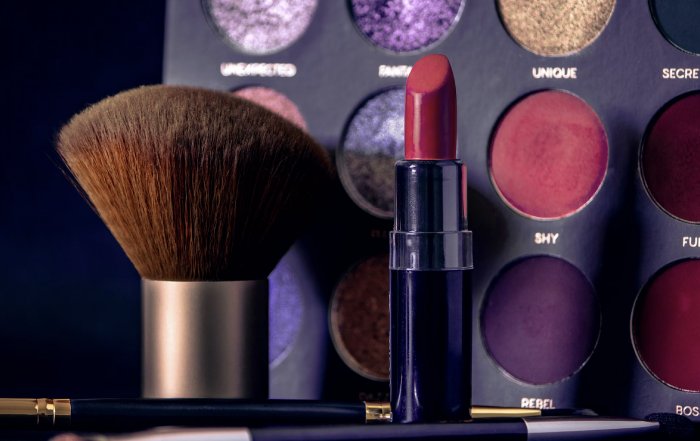The Impact of Climate Change on Skincare Development
Climate Change as a Defining Force in Modern Skincare
By 2026, climate change has moved from an abstract environmental concern to a daily reality that shapes how people live, work and care for their skin across continents, climates and cultures. Rising temperatures, increased UV radiation, urban air pollution, shifting humidity patterns and more frequent extreme weather events are transforming the conditions in which skin exists, and this shift is fundamentally reshaping how skincare is researched, formulated, marketed and used. For BeautyTipa and its global audience, the intersection between environmental change and personal care is no longer a niche topic; it has become a central lens through which beauty, wellness and lifestyle must be understood.
As organizations such as the Intergovernmental Panel on Climate Change (IPCC) and agencies like the World Meteorological Organization continue to highlight accelerating climatic disruption, the skincare sector is being forced to confront both the risks and the responsibilities that come with serving consumers in a rapidly warming world. In markets from the United States and the United Kingdom to South Korea, Japan, Brazil and South Africa, there is a growing recognition that climate resilience is not only an environmental agenda but also a health, business and innovation agenda. Readers who explore broader perspectives on beauty and personal care at BeautyTipa increasingly expect brands to demonstrate a deep understanding of climate science, dermatological evidence and sustainable practice, while also delivering products that perform in more extreme and less predictable conditions.
How a Changing Climate Alters Skin Biology
For dermatologists and skincare researchers, climate change is first and foremost a physiological issue, because environmental conditions directly affect the skin barrier, microbiome, pigmentation and inflammatory response. Scientific bodies such as the World Health Organization and the American Academy of Dermatology have documented that higher ambient temperatures, prolonged heatwaves and increased UV exposure can exacerbate dehydration, accelerate photoaging and increase the incidence of skin cancers, particularly in fair-skinned populations in regions such as Australia, the United States and parts of Europe. At the same time, more intense sunlight and changing UV indices in countries such as Japan, South Korea and Singapore are reshaping daily sun protection habits and driving demand for more sophisticated, cosmetically elegant sunscreens.
Air quality is another critical dimension. As urbanization intensifies and climate change worsens ground-level ozone and particulate pollution in megacities from Beijing and Delhi to Los Angeles and London, dermatological research published through platforms like PubMed and professional societies such as the British Association of Dermatologists has linked pollution exposure to increased oxidative stress, pigmentation disorders, eczema flare-ups and premature wrinkles. Consumers increasingly seek to understand how skincare routines can protect against environmental stressors, and this has spurred a new generation of formulations that claim to protect the skin barrier from fine particles, heavy metals and oxidants, often through antioxidant complexes, barrier-repair lipids and film-forming polymers.
Humidity and precipitation patterns are also shifting, with profound implications for skin health in different regions. In drier, heat-stressed areas of the United States, Australia and Southern Europe, chronic low humidity can compromise the stratum corneum, leading to greater transepidermal water loss and heightened sensitivity. Conversely, more intense monsoon seasons and higher humidity in parts of Southeast Asia and Africa can create conditions that favor fungal infections, acne and seborrheic dermatitis. Research institutions such as Harvard T.H. Chan School of Public Health and ETH Zürich have explored how climate-driven environmental changes intersect with health outcomes, and similar frameworks are now being applied to skin, as brands and formulators attempt to design products that are not only suited to a skin type but also to a climate profile and even to future climatic scenarios.
Regional Realities: A Global View of Climate and Skin
The impact of climate change on skincare development is not uniform; it is mediated by geography, infrastructure, cultural practices and economic capacity. In North America and Europe, increased frequency of heatwaves and rising UV indices have led to stronger public health campaigns around sun safety, with organizations like Cancer Research UK and the Skin Cancer Foundation promoting year-round sunscreen use and protective clothing. This has accelerated demand for broad-spectrum SPF products, mineral formulations for sensitive skin, and hybrid skincare-makeup solutions that integrate sun protection with cosmetic benefits, trends that are closely monitored by analysts and commentators who follow emerging beauty trends.
In Asia, particularly in countries such as South Korea, Japan, Thailand and Singapore, the convergence of high humidity, intense sunlight and dense urban environments has driven innovation in lightweight, pollution-protective skincare with advanced textures, breathable finishes and multi-step routines. The K-beauty and J-beauty ecosystems have responded swiftly to climate concerns, introducing products that promise to shield the skin from fine dust, UV rays and heat-induced redness, while maintaining the luminous, hydrated look that is culturally prized in these markets. Public and private research initiatives, including those highlighted by the Korea Institute of Science and Technology and Japanese cosmetic associations, increasingly incorporate climate resilience and environmental exposure as core design parameters.
In Africa, South America and parts of South and Southeast Asia, climate change intersects with broader issues of water scarcity, infrastructure stress and inequality. Here, the skincare impact is often framed within the larger context of public health and access to basic hygiene. Organizations such as UNICEF and UN Environment Programme have emphasized that climate-driven disruptions to water supply and sanitation can increase the risk of skin infections and other dermatological conditions, particularly among vulnerable populations. In these regions, affordable, robust, multipurpose skincare that can withstand high heat, intermittent water access and long outdoor exposure is becoming a priority, and international brands are being challenged to adapt their product portfolios and distribution models accordingly, a theme that resonates with the global and regional focus of BeautyTipa and its readers who follow international beauty and wellness developments.
Rethinking Ingredients and Formulation Strategies
As climate change alters environmental conditions, the very building blocks of skincare-ingredients, preservatives, UV filters, emollients and active compounds-are undergoing scrutiny and reinvention. The shift is driven by two interconnected forces: the need to protect skin more effectively in harsher climates, and the imperative to reduce the environmental footprint of products to avoid further contributing to the crisis they seek to address.
On the efficacy side, formulators are prioritizing robust photoprotection, antioxidant defense and barrier support. Data from organizations such as the Environmental Protection Agency (EPA) in the United States and the European Environment Agency underscore the importance of UV protection as ozone patterns shift and outdoor heat exposure rises. This has led to more sophisticated combinations of organic and inorganic UV filters, encapsulation technologies that enhance stability and reduce irritation, and the integration of DNA-repair enzymes and photolyase ingredients in premium ranges. Consumers in markets such as Germany, France and the Netherlands are increasingly educated about UVA, UVB and even infrared protection, and they expect sunscreens that are water-resistant, reef-safe and cosmetically acceptable enough for daily wear.
Pollution-defense skincare is another rapidly expanding category. Research published by institutions like King's College London and Charité Universitätsmedizin Berlin has examined the cutaneous impact of particulate matter and nitrogen dioxide, prompting brands to develop products that claim to neutralize free radicals, chelate heavy metals or form protective barriers against pollution. These formulations often rely on antioxidants such as vitamin C and E, niacinamide, polyphenols and botanical extracts, but there is a growing emphasis on standardized, clinically tested actives rather than vague "natural" claims, reflecting a broader movement towards evidence-based beauty that BeautyTipa highlights within its guides and tips for informed skincare choices.
At the same time, climate change is affecting the availability and sustainability of raw materials, particularly botanicals and agricultural ingredients. Shifts in temperature and rainfall patterns, as documented by the Food and Agriculture Organization of the United Nations, are impacting yields of crops used for oils, butters, waxes and plant extracts, from shea in West Africa to olives in the Mediterranean. This has prompted many companies to reconsider their supply chains, explore climate-resilient crops, invest in regenerative agriculture and experiment with lab-grown or bioengineered ingredients that can provide consistent quality without overburdening ecosystems. Biotech startups, often in partnership with larger players such as L'Oréal, Unilever and Estée Lauder Companies, are developing fermentation-derived actives, lab-cultivated botanicals and precision lipids, positioning biotechnology as a key enabler of climate-adapted skincare.
Climate-Adapted Skincare Quiz
Discover your personalized climate-resilient skincare strategy
Your Climate-Smart Recommendations:
Sustainability, Ethics and the Climate-Conscious Consumer
The climate crisis has also catalyzed a profound cultural and ethical shift in how consumers evaluate skincare brands, with environmental performance now seen as a core dimension of trustworthiness. Surveys conducted by organizations like NielsenIQ and McKinsey & Company indicate that consumers, especially younger generations in markets such as the United States, Canada, the United Kingdom, Germany and the Nordic countries, increasingly expect brands to demonstrate verifiable commitments to carbon reduction, responsible sourcing, circular packaging and transparent communication. For readers who engage with business and finance insights at BeautyTipa, the message is clear: sustainability is no longer a marketing differentiator but a baseline expectation and a material business risk.
In response, major players and indie brands alike are pursuing climate strategies that encompass product design, manufacturing, logistics and end-of-life management. Many companies now measure and disclose their greenhouse gas emissions following frameworks from the Greenhouse Gas Protocol and the Science Based Targets initiative, and some are integrating internal carbon pricing to guide innovation decisions. Packaging, long a point of criticism in the beauty sector, is undergoing rapid transformation, with moves towards lightweight materials, refillable systems, recycled content and mono-material designs that facilitate recycling. Organizations such as the Ellen MacArthur Foundation have been influential in promoting circular economy principles, and these ideas are now visible in refill stations, concentrated product formats and minimalist packaging that are increasingly common in markets from Paris and Milan to Seoul and Sydney.
Ethical sourcing and social impact are also central to climate-aligned skincare, particularly given the reliance of many brands on ingredients grown in climate-vulnerable regions. Fair trade initiatives, community partnerships and long-term sourcing agreements can help protect both ecosystems and livelihoods, while also providing brands with more resilient supply chains. Certifications from bodies like Fairtrade International and Rainforest Alliance are gaining visibility on skincare labels, but sophisticated consumers are also looking beyond logos to assess whether brands provide granular, verifiable information about origin, farming practices and community benefits. This emphasis on transparency and accountability aligns closely with BeautyTipa's focus on experience, expertise and trustworthiness, as the platform seeks to guide readers towards brands and products that align with both personal values and environmental realities.
Technology, Data and Climate-Smart Product Design
Technology is playing an increasingly important role in helping the skincare industry respond to climate change, from ingredient discovery and product testing to personalized recommendations and supply chain optimization. Artificial intelligence, machine learning and big data analytics are being used by companies and research institutions to model how different environmental conditions affect skin over time, to predict consumer needs in specific geographies and to optimize formulations for stability and performance under heat, humidity and pollution stress. Organizations such as MIT Media Lab and corporate innovation hubs in Europe and Asia are exploring how sensors, wearables and smartphone-based diagnostics can capture real-time data on UV exposure, air quality and skin parameters, enabling more precise and adaptive skincare routines.
Digital platforms and apps now offer climate-aware skincare advice, integrating meteorological data from services like the National Oceanic and Atmospheric Administration (NOAA) or Met Office with personalized skin profiles. These tools can suggest when to increase SPF protection, switch to richer moisturizers during dry spells or incorporate pollution-defense products on high-smog days, reflecting a broader convergence between environmental intelligence and daily self-care. For readers interested in the intersection of technology and beauty, BeautyTipa has devoted coverage to how digital innovation is transforming skincare and wellness, highlighting both the opportunities and the ethical considerations around data privacy, algorithmic bias and accessibility.
On the R&D side, climate change has accelerated the adoption of advanced testing methods, including in silico modeling, 3D skin equivalents and non-animal safety assessments, many of which are being refined under the guidance of regulatory bodies such as the European Commission and the U.S. Food and Drug Administration. These tools allow brands to evaluate how products will perform under simulated climate stress, from repeated heat exposure to high-salinity sweat and pollution mixtures, enabling more robust claims and reducing the need for resource-intensive real-world testing. At the same time, lifecycle assessment software and blockchain-based traceability platforms are helping companies map the environmental impact of products from raw material to recycling, supporting more informed decision-making and more credible sustainability communication.
Evolving Consumer Routines in a Warming World
For individuals, the impact of climate change on skincare is experienced most directly through daily routines, seasonal adjustments and long-term habits. As heatwaves become more frequent in regions such as Southern Europe, the Southern United States and parts of Asia, people are rethinking how they layer products, how often they reapply sunscreen, how they manage sweat-induced breakouts and how they protect their skin during outdoor work or commuting. In cooler climates like Scandinavia, Canada and parts of the United Kingdom, warming winters and more variable weather are challenging traditional assumptions about "winter skin" and "summer skin," requiring more dynamic, responsive approaches.
Hydration has emerged as a central theme, both in terms of topical moisturization and systemic wellness. Dermatologists and nutrition experts, including those whose work is highlighted by institutions like the Mayo Clinic and Cleveland Clinic, emphasize that adequate water intake, balanced nutrition and stress management are critical in helping the skin adapt to environmental stress. This holistic perspective is reflected in the content that BeautyTipa curates on wellness and food and nutrition, recognizing that resilient skin is supported by resilient lifestyles that integrate sleep, exercise, mental health and mindful product selection.
Consumers are also simplifying and editing their routines in response to both climate concerns and a broader backlash against overconsumption. Rather than accumulating large collections of products, many individuals in markets from Germany and the Netherlands to Japan and New Zealand are seeking multi-functional, high-performance formulas that address multiple needs-hydration, protection, repair-while minimizing waste and environmental impact. This shift towards "skin minimalism" or "slow beauty" aligns with climate-aware values, encouraging more intentional purchasing, longer product use and a focus on quality over quantity, themes that are regularly explored in BeautyTipa's coverage of daily routines and long-term skincare strategies.
Business Strategy, Risk and Opportunity in the Climate Era
For the global skincare industry, climate change is both a strategic risk and a powerful driver of innovation. Physical risks include supply chain disruptions due to extreme weather, water scarcity affecting manufacturing sites, and regulatory changes that restrict certain ingredients or mandate sustainability disclosures. Transition risks stem from shifting consumer preferences, evolving standards from investors and financial institutions, and new regulations such as the European Green Deal that push companies towards lower-carbon, more circular business models. Organizations like the Task Force on Climate-related Financial Disclosures (TCFD) have encouraged companies to analyze and report these risks, and leading beauty conglomerates now routinely include climate scenarios in their strategic planning.
At the same time, there are significant opportunities for those who can anticipate and respond to climate-driven needs. Brands that invest in climate-resilient sourcing, low-energy manufacturing, water-smart formulations and circular packaging can not only reduce their environmental footprint but also differentiate themselves in competitive markets. Investors and analysts who follow the intersection of sustainability and profitability, including those writing for platforms like Bloomberg and Financial Times, have noted that companies with strong environmental, social and governance (ESG) performance often enjoy reputational benefits, better risk management and, in some cases, superior long-term returns. For entrepreneurs, professionals and job seekers who follow beauty-related careers and employment trends, climate-aligned innovation is creating new roles in sustainability management, green chemistry, regenerative sourcing and impact measurement.
The competitive landscape is also being reshaped by collaborations and coalitions. Industry initiatives such as the EcoBeautyScore Consortium and various packaging alliances bring together brands, suppliers, NGOs and academic partners to develop common metrics, tools and standards for environmental performance. These collective efforts can accelerate progress, reduce duplication and provide consumers with clearer, more comparable information, although they also raise questions about data governance, standard-setting power and inclusion of smaller players. For a platform like BeautyTipa, which serves a diverse international readership, monitoring these developments is essential to offering nuanced, context-aware analysis of how climate change is transforming not only products but also the structures and incentives that shape the beauty and skincare ecosystem.
Looking Ahead: Climate-Resilient Beauty as a New Standard
As 2026 unfolds, it is increasingly evident that climate change is not a temporary disruption but a defining context for the future of skincare. The industry is moving from treating climate as a corporate social responsibility topic to integrating it into core product design, business strategy and consumer engagement. For individuals in the United States, Europe, Asia, Africa, South America and beyond, this means that the creams, serums, cleansers and sunscreens they use will increasingly be shaped by considerations of heat, humidity, UV exposure, pollution and resource scarcity, as well as by ethical questions about carbon footprints, biodiversity and social equity.
For BeautyTipa, the mission is to help readers navigate this complex landscape with clarity, discernment and confidence. By connecting insights from dermatology, climate science, technology, business and culture, and by curating content across skincare, health and fitness, fashion and related domains, the platform aims to support informed choices that honor both personal well-being and planetary boundaries. Climate-resilient beauty is not a passing trend but an emerging standard, one that demands experience, expertise, authoritativeness and trustworthiness from every actor in the value chain, from ingredient growers and formulators to brands, retailers, regulators and media.
Ultimately, the impact of climate change on skincare development is a reminder that beauty does not exist in isolation from the world; it is a reflection of environmental realities, social values and technological possibilities. As temperatures rise and weather patterns shift, the question is not whether skincare will change, but how thoughtfully and responsibly it will adapt. Platforms like BeautyTipa have a vital role to play in shaping that adaptation, ensuring that the pursuit of healthy, radiant skin goes hand in hand with a commitment to a healthier, more resilient planet.








